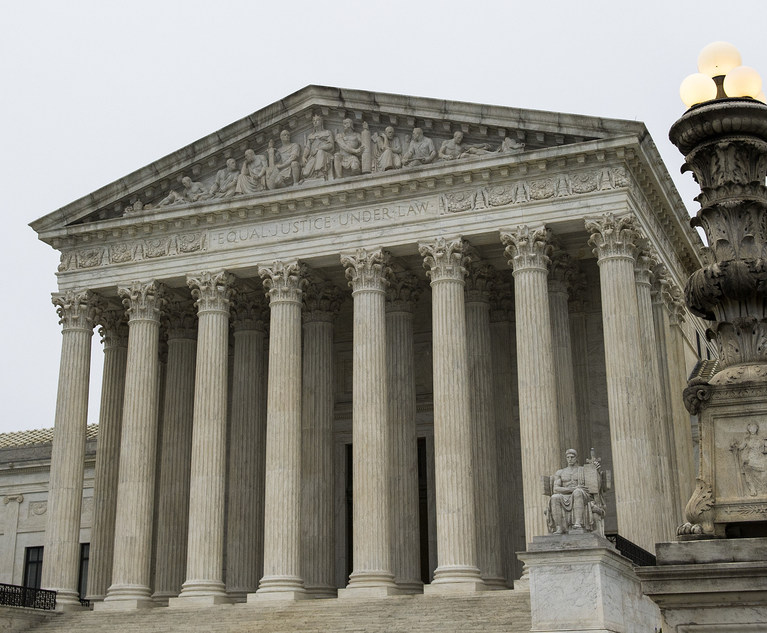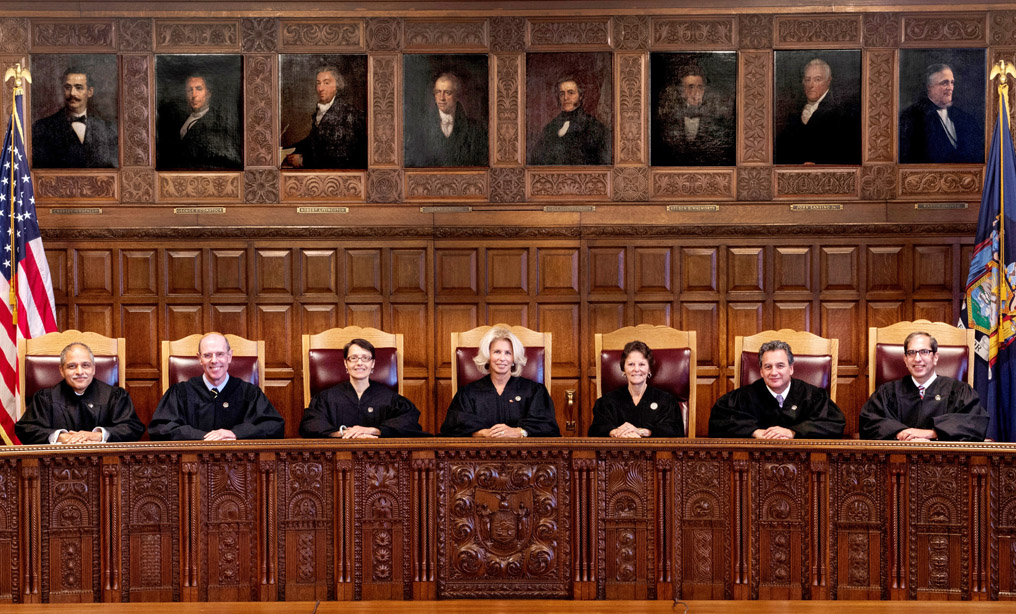Steven J Ahmuty Jr

July 06, 2021 | New York Law Journal
U.S. Supreme Court Tackles Retroactivity IssueIn this edition of their Appellate Practice column, Thomas R. Newman and Steven J. Ahmuty Jr. discusses the U.S. Supreme Court's recent opinion in 'Edwards v. Vannoy', holding that a prior decision requiring unanimous jury verdicts does not apply retroactively to overturn final state-court convictions on federal collateral review.
By Thomas R. Newman and Steven J. Ahmuty Jr.
8 minute read

May 04, 2021 | New York Law Journal
Amicus Curiae Participation in the Court of AppealsIn this edition of their Appellate Practice column, Thomas R. Newman and Steven J. Ahmuty Jr. discuss the elements of a motion for leave to file an amicus brief in the New York Court of Appeals and the attributes of a well-crafted amicus brief.
By Thomas R. Newman and Steven J. Ahmuty Jr.
11 minute read

March 02, 2021 | New York Law Journal
Motions for Permission To Appeal to the Court of AppealsThe Appellate Division has just ruled in your favor but a tenacious adversary has elected to file a motion for permission to appeal to the Court of Appeals to seek one last bite at the apple. In their Appellate Practice column, Thomas Newman and Steven Ahmuty Jr. discuss the ins and outs surrounding these motions including threshold issues, errors to avoid and drafting considerations.
By Thomas R. Newman and Steven J. Ahmuty Jr.
11 minute read

January 05, 2021 | New York Law Journal
Creative Use of Dissenting OpinionsIn their Appellate Practice column, Thomas R. Newman and Steven J. Ahmuty Jr. discuss notable dissents from important cases, writing that although a dissent has no precedential effect, if creatively used it can lessen the impact of an adverse authority and enhance a party's chances of success.
By Thomas R. Newman and Steven J. Ahmuty Jr.
6 minute read

November 03, 2020 | New York Law Journal
Stare Decisis in Federal and State CourtsIn their Appellate Practice column, Thomas R. Newman and Steven J. Ahmuty Jr. provide a refresher on stare decisis principles as described in various cases and sources.
By Thomas R. Newman Steven J. Ahmuty Jr.
8 minute read

September 01, 2020 | New York Law Journal
Overlapping Resolved and Unresolved Claims Bar Rule 54(b) AppealIn their Appellate Practice column, Thomas R. Newman and Steven J. Ahmuty Jr. discuss the issue of appellate jurisdiction is always open for consideration by a reviewing court, even if no party has raised it.
By Thomas R. Newman and Steven J. Ahmuty Jr.
8 minute read

June 30, 2020 | New York Law Journal
The Principle of Party PresentationIn their Appellate Practice column, Thomas R. Newman and Steven J. Ahmuty Jr. discuss the Sineneng-Smith case, where the U.S. Supreme Court rebuked the Ninth Circuit for unilaterally injecting an entirely new substantive issue into a case that had already been briefed, argued and submitted for decision.
By Thomas R. Newman and Steven J. Ahmuty Jr.
9 minute read

May 05, 2020 | New York Law Journal
U.S. Supreme Court Debates Stare Decisis PrinciplesIn their Appellate Practice column, Thomas Newman and Steven Ahmuty discuss 'Apodaca v. Oregon,' and its companion case, 'Johnson v. Louisiana,' where a plurality of the U.S. Supreme Court held that although the Sixth Amendment right to trial by jury requires a unanimous jury verdict in federal criminal trials, it does not require a unanimous verdict in state criminal trials.
By Thomas R. Newman and Steven J. Ahmuty Jr.
10 minute read

March 03, 2020 | New York Law Journal
Jurisdictional Considerations in the Appellate DivisionIn their Appellate Practice column, Thomas R. Newman and Steven J. Ahmuty Jr. discuss the three basic jurisdictional considerations in the Appellate Division: aggrievement, appealability and reviewability. Judging by the volume of decisions addressing these threshold jurisdictional requirements, practitioners often overlook them before embarking upon the time and expense of an appeal.
By Thomas R. Newman and Steven J. Ahmuty Jr.
10 minute read

January 13, 2020 | New York Law Journal
Reply Briefs: Having an Effective Last WordWhile reply briefs are optional, few lawyers can resist the temptation of having the last word when the opportunity presents itself. In their Appellate Practice column, Thomas R. Newman and Steven J. Ahmuty Jr. describe the qualities of an effective reply. Briefs that do little to advance the appellant's cause and should be avoided.
By Thomas R. Newman and Steven J. Ahmuty Jr.
9 minute read
Trending Stories
- 1Voir Dire Voyeur: I Find Out What Kind of Juror I’d Be
- 2When It Comes to Local Law 97 Compliance, You’ve Gotta Have (Good) Faith
- 3Legal Speak at General Counsel Conference East 2024: Virginia Griffith, Director of Business Development at OutsideGC
- 4Legal Speak at General Counsel Conference East 2024: Bill Tanenbaum, Partner & Chair, AI & Data Law Practice Group at Moses Singer
- 5Morgan & Morgan Looks to Grow Into Complex Litigation While Still Keeping its Billboards Up
More from ALM
- Legal Speak at General Counsel Conference East 2024: Virginia Griffith, Director of Business Development at OutsideGC 1 minute read
- Legal Speak at General Counsel Conference East 2024: Bill Tanenbaum, Partner & Chair, AI & Data Law Practice Group at Moses Singer 1 minute read
- Legal Speak at General Counsel Conference East 2024: Julie Cantor, Associate General Counsel at Studs, Inc. 1 minute read



